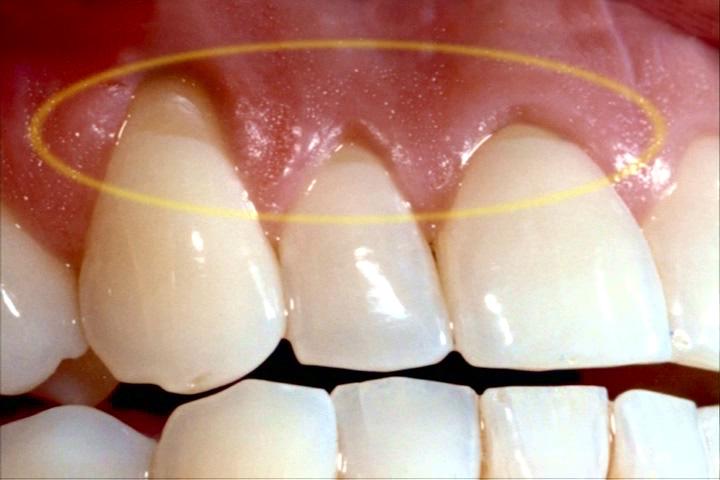Root Coverage and Gum Recession
PATIENT REVIEWS
Gum tissue protects the tooth root
When the gumline moves away from the visible part of the tooth, exposing the tooth root, we call this gingival recession.
Without gum tissue to protect them, tooth roots become more susceptible to decay and painful sensitivity.
One of the most common complaints of patients is sensitive teeth due to gum recession. When gum recession occurs, the roots of the teeth (as evidenced by the darker yellow color) are exposed. The roots do not have the same enamel layer that teeth do so they are more prone to sensitivity, decay and eventual tooth loss.
Dr. Edalat’s team are certified specialists in this surgical procedure. One of the main advantages of Dr. Edalat’s cosmetic dental studio is that you can complete your entire treatment by certified specialists who communicate in detail all aspects of the treatment that are interrelated for optimal results. Many patients don’t like the inconvenience of having to go to different offices to complete their work. There is the risk that the timing sequence to complete a certain treatment when it is being done at different offices may compromise the final result. Also since the work is being done in different offices there may be a miscommunication between the referring doctors which may also compromise the final result.
PATIENT EDUCATION VIDEOS
What is Gingival Recession?
Most common causes of gingival recession:
- Trauma- brushing hard with hard bristled brushes
- Periodontal disease- inflammation of the gums
- Orthodontics
- Genetics
- Teeth Grinding/Bruxing
- Crowded and malpositioned teeth

Periodontic plastic surgery can be used to cover roots, and develop new gum tissue to help maintain your teeth healthy, strong and comfortable for a lifetime. Dr. Edalat uses a technique that replaces the lost tissue by utilizing a membrane that is placed and your own gum tissue is then pulled up and over this membrane. This ensures that the healed area is the same color and texture as your own gum tissue on adjacent teeth and just as importantly greatly reduces post-operative discomfort as there is only one surgical site , not two areas as is seen with other methods of root coverage.





The causes of gingival recession
This condition has a variety of solutions, depending on the specific cause.
Receding gums can be the result of many factors, including improper brushing technique, grinding and clenching your teeth, a problem bite, periodontal disease, tobacco use, and lip or tongue piercing.
Improper brushing can wear away gums when you brush forcefully, use a hard-bristled brush, or brush in a sawing motion across the teeth. Grinding and clenching or a bad bite can contribute to gum recession by putting improper stresses on teeth and jawbone. These stresses can gradually destroy the structures that hold teeth in place, causing the gum tissue to recede.
Gums infected with periodontal disease lose their attachment to the teeth and then pull away and recede from the roots. In addition, tobacco increases the risk of periodontal disease, and the many harmful chemicals in tobacco make it harder for gum tissues to heal and regain their attachment to the teeth.
Lastly, pierced lip or tongue jewelry can rub on gum tissue and wear it away, often painlessly.
Diagnosis and treatment
We do a thorough exam to determine the causes of your gingival recession, and then we make treatment recommendations that fit your situation.
Some options are changing your brushing technique, treating bruxism, treating a misaligned bite or periodontal disease, avoiding tobacco, filling cavities, treating sensitive teeth, or removing pierced mouth jewelry. In some cases, we may also recommend surgery to replace the missing gum tissue.
With proper treatment and homecare, we can help you maintain a healthy mouth and smile.
PATIENT REVIEWS
My husband and I both needed extensive dental work…and so, we actually flew to New York to see Dr. Edalat, after meeting one of his students who had raved about Dr. Edalat and his office. Both my husband and I feel and look so much better after our treatment. We wouldn’t dream of seeing any other dentist ever again!”
Louise C. – Kent, England

 Google
Google Yahoo
Yahoo Yelp
Yelp Insider Pages
Insider Pages Healthgrades
Healthgrades CitySearch
CitySearch Wellness
Wellness




